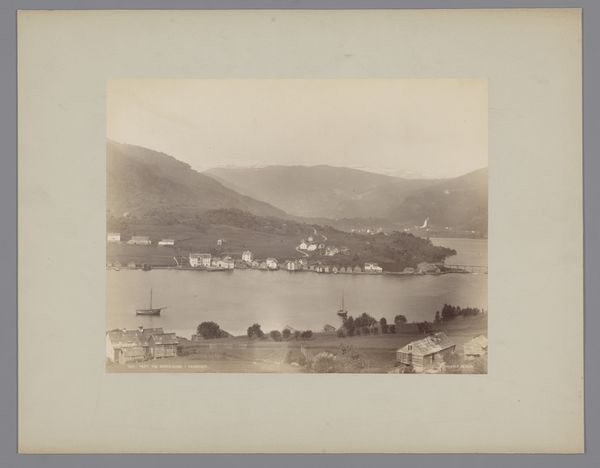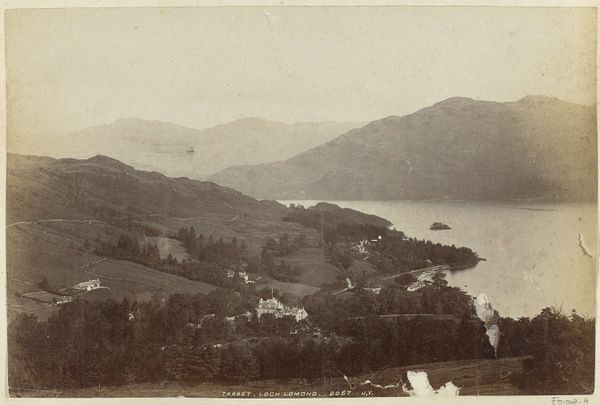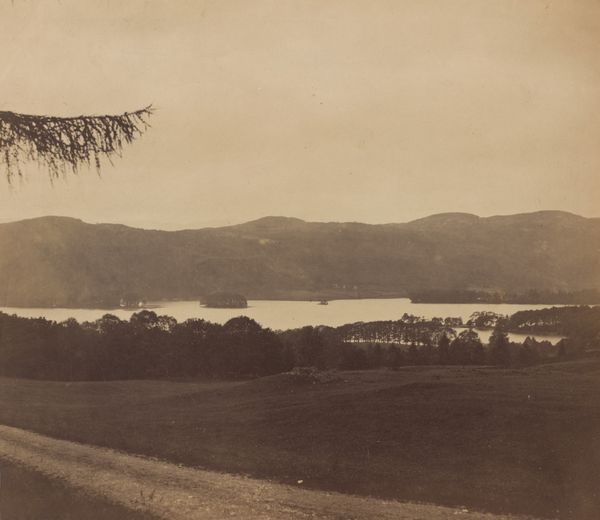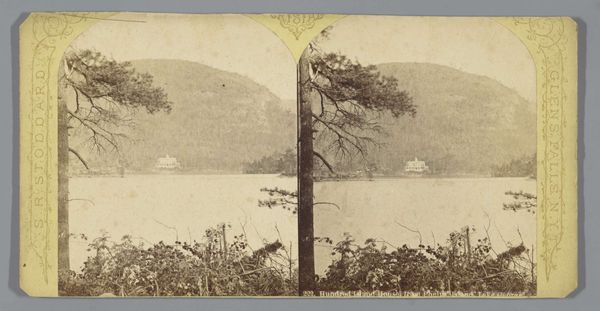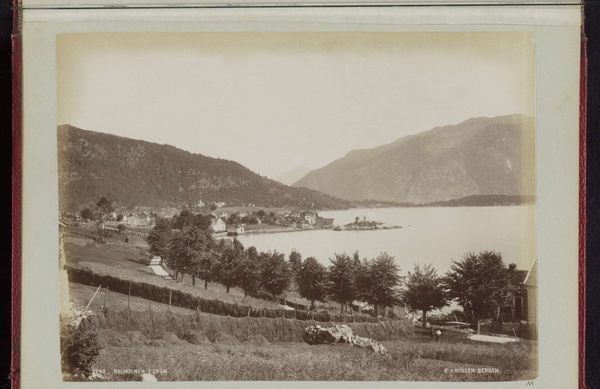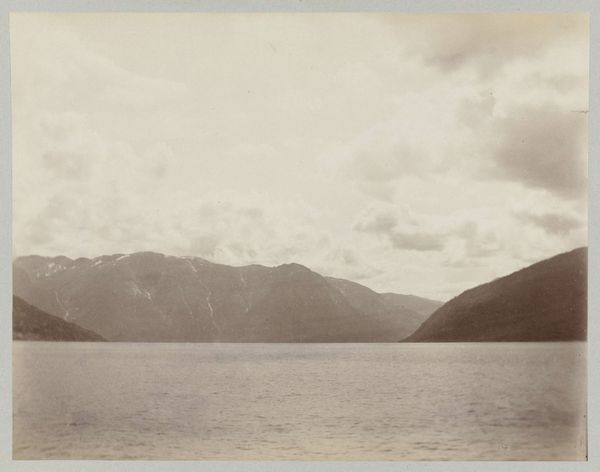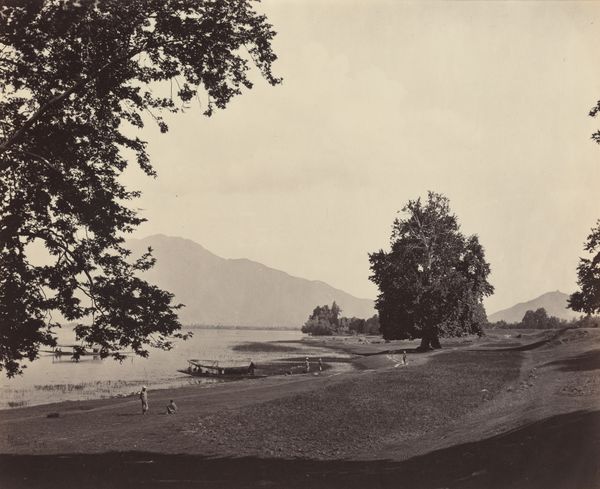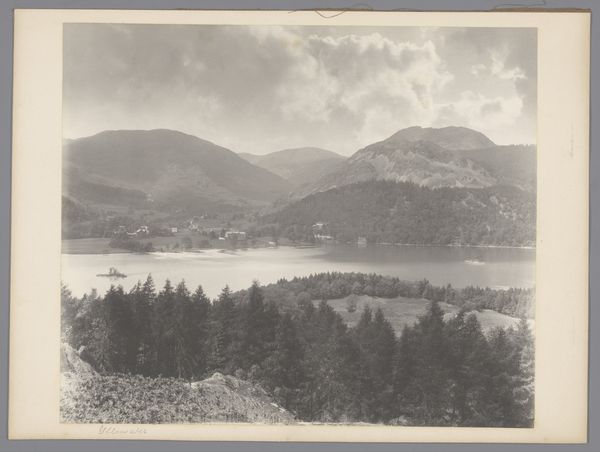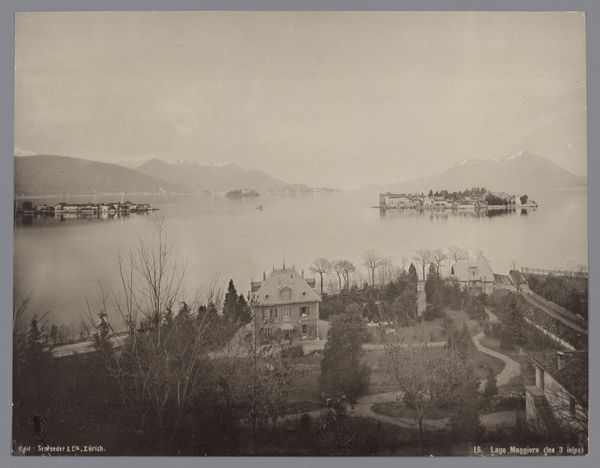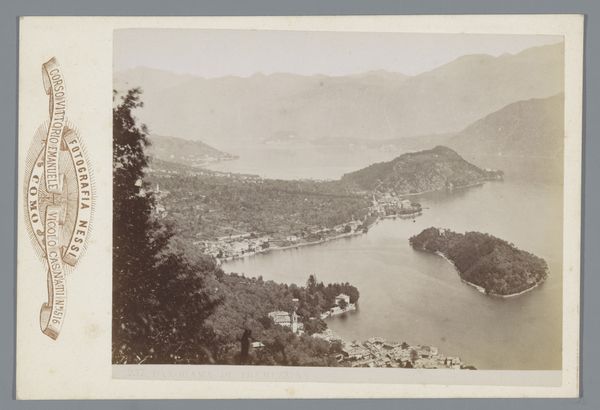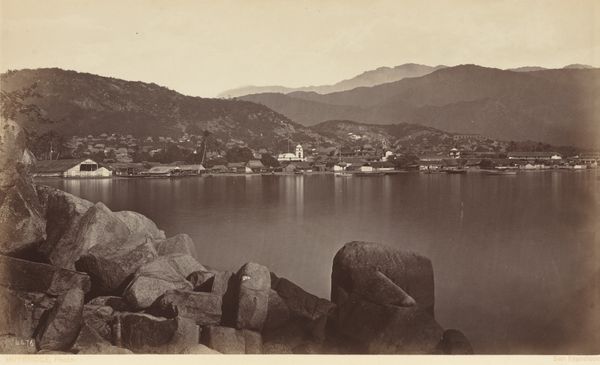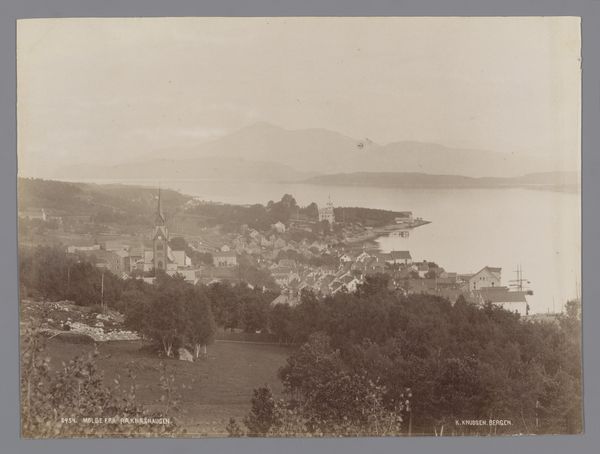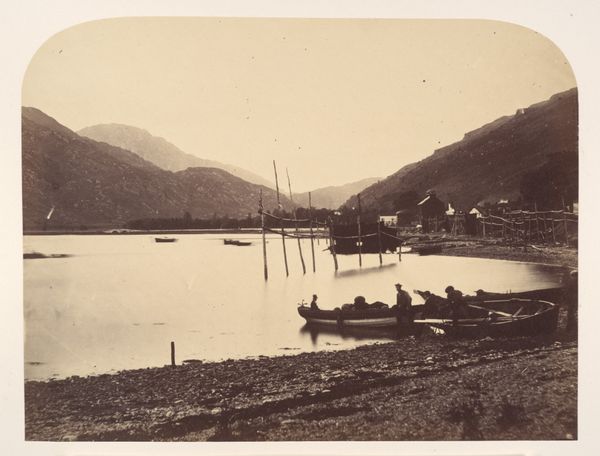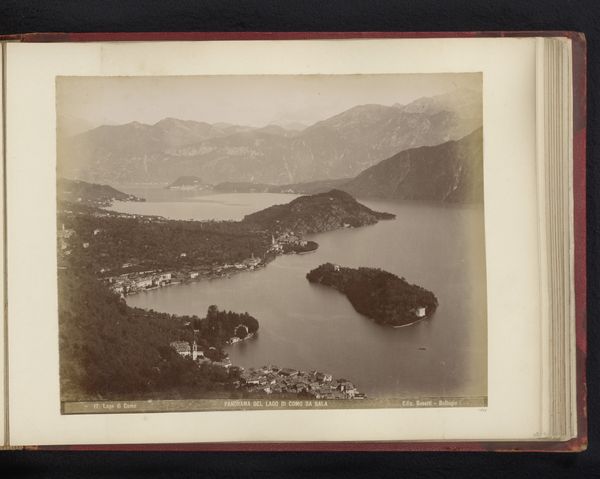
photography, gelatin-silver-print
#
landscape
#
photography
#
orientalism
#
gelatin-silver-print
#
hudson-river-school
#
realism
Dimensions: mount: 24.77 x 32.39 cm (9 3/4 x 12 3/4 in.) sheet: 17.15 x 22.23 cm (6 3/4 x 8 3/4 in.)
Copyright: National Gallery of Art: CC0 1.0
Curator: This photograph, "From Trophy Point, West Point, Hudson River," captured around 1867 or 1868 by George K. Warren, is a gelatin-silver print presenting a vista that encapsulates both tranquility and a specific moment in American history. What impressions strike you most? Editor: Serenity, absolutely. But there's a latent melancholy, isn't there? It's muted, like a memory fading. The sepia tones feel… elegiac. Curator: Elegiac is apt. Warren's photography often touched upon themes of the passage of time and the way human endeavor interacts with the natural world. The river itself has such profound cultural associations. I'm interested in how landscape becomes almost like an allegory of the American project itself. Editor: It's interesting you say that. It's all so controlled, a harmonious composition, despite being "realistic". Note the oval crop... gives it an old-fashioned almost romantic sensibility, framing this 'natural' view like it’s precious, fragile even. Curator: The oval format speaks to pictorial traditions, it definitely soften’s realism edges into a romantic key. But notice how Warren is contrasting signs of military training. This location represents this kind of sublime natural setting transformed into this cradle of military power. Those boats could stand for ships of war? Editor: Possibly. Though their white sails against the grey-brown monotone almost suggest peace – a future less at war perhaps. It’s the curve of those mountains repeated throughout which lends the whole picture this gentleness, for me. Curator: Perhaps the boats signify leisure or trade as well. Thinking about these layers of meaning opens so many doors of interpretation! This tension underscores a dynamic often present within landscape art: an attempt to capture both an idealized vision and a documentation of the lived, transforming landscape. Editor: The fact that Warren took this after the civil war only enhances this effect, as it asks viewers, perhaps, to look back to such idyllic and glorious visions of nature whilst equally facing an unstable future of constant warfare? A heavy contradiction. It holds all that internal complexity for the view I find myself, even all these years later. Curator: Indeed. Ultimately, it prompts reflections on history, the visual representation of our landscape and also on peace, or perhaps merely its fleeting depiction, making the observer question their vision. Editor: Thank you! Such insight. And such food for thought, given how similar our relationship to land persists in our world today.
Comments
No comments
Be the first to comment and join the conversation on the ultimate creative platform.
